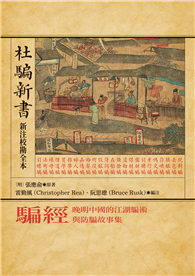British author Graham Greene pursued a professional career as a journalist before becoming a full-time writer. After that, he continued taking on reporting assignments as a correspondent for a variety of publications. Greene knew the profession inside out, and the role of the media in shaping the public’s views through information gathering and dissemination--a topic insufficiently researched by criticism--was among his main concerns. Greene’s fictional work features an array of journalists, and the representation of (un)ethical practices of the profession is a constant reference in his narrative. In this book, I intend to fill this research gap in Greenean studies, focusing on three main topics: the author’s reflection on the journalistic practice in connection with the classic paradigm of objectivity versus empathy; his questioning of the misuse of power when gathering and disseminating information by journalists, editors and news corporation owners; and finally, the relationship between journalists and their readership’s expectations, as well as the importance of fostering critical readers that make informed trustworthy decisions regarding journalism performance.
| FindBook |
有 1 項符合
Fictional Representations of (Un)Ethical Journalistic Practices in Graham Greene’s Work: Burnt-Out Reporters的圖書 |
 |
Fictional Representations of (Un)Ethical Journalistic Practices in Graham Greene’s Work: Burnt-Out Reporters 作者:Valverde Jiménez 出版社:Routledge 出版日期:2024-12-13 語言:英文 規格:精裝 / 256頁 / 普通級/ 初版 |
| 圖書館借閱 |
| 國家圖書館 | 全國圖書書目資訊網 | 國立公共資訊圖書館 | 電子書服務平台 | MetaCat 跨館整合查詢 |
| 臺北市立圖書館 | 新北市立圖書館 | 基隆市公共圖書館 | 桃園市立圖書館 | 新竹縣公共圖書館 |
| 苗栗縣立圖書館 | 臺中市立圖書館 | 彰化縣公共圖書館 | 南投縣文化局 | 雲林縣公共圖書館 |
| 嘉義縣圖書館 | 臺南市立圖書館 | 高雄市立圖書館 | 屏東縣公共圖書館 | 宜蘭縣公共圖書館 |
| 花蓮縣文化局 | 臺東縣文化處 |
|
|
內容簡介
作者簡介
Beatriz Valverde Jiménez holds a Doctorate in English Philology from Universidad de Jaén. She also holds an M.A. in Spanish from Loyola University Chicago. Currently, she is Assistant Professor at the Department of English Philology at Universidad de Jaén. Her main research interests are Theology and Literature, specifically in the work of Graham Greene; Journalism and Literature; Literature and Cultural Studies in English and Spanish. On these topics, she has published extensively in international journals, such as Anglia, English Studies, European Journal of English Studies, and Revista Latina de Comunicación Social, among others. In 2020 she co-edited with Dr. Mark Bosco Reading Flannery O’Connor in Spain: Andalusia in Andalucía.
|











